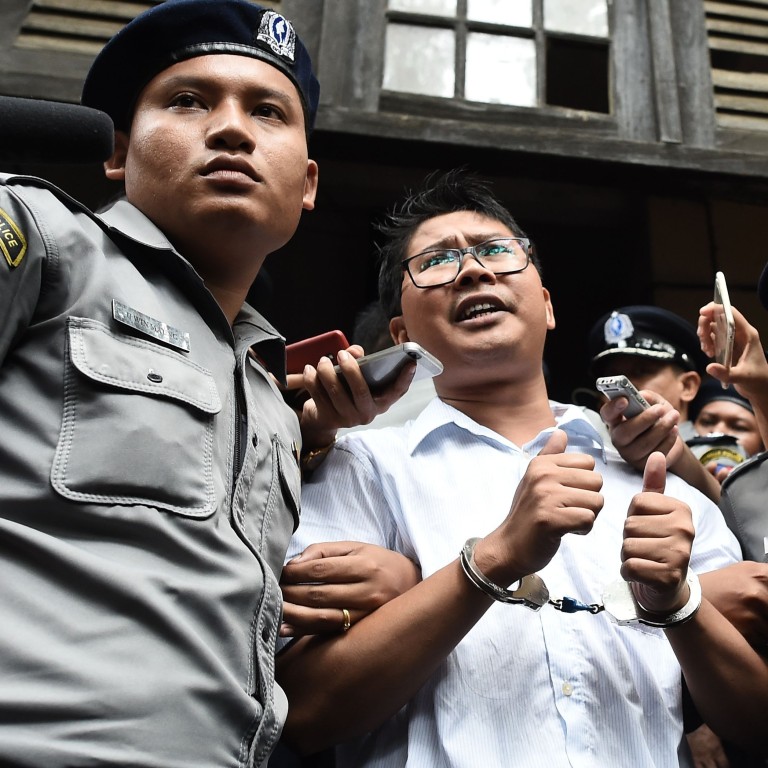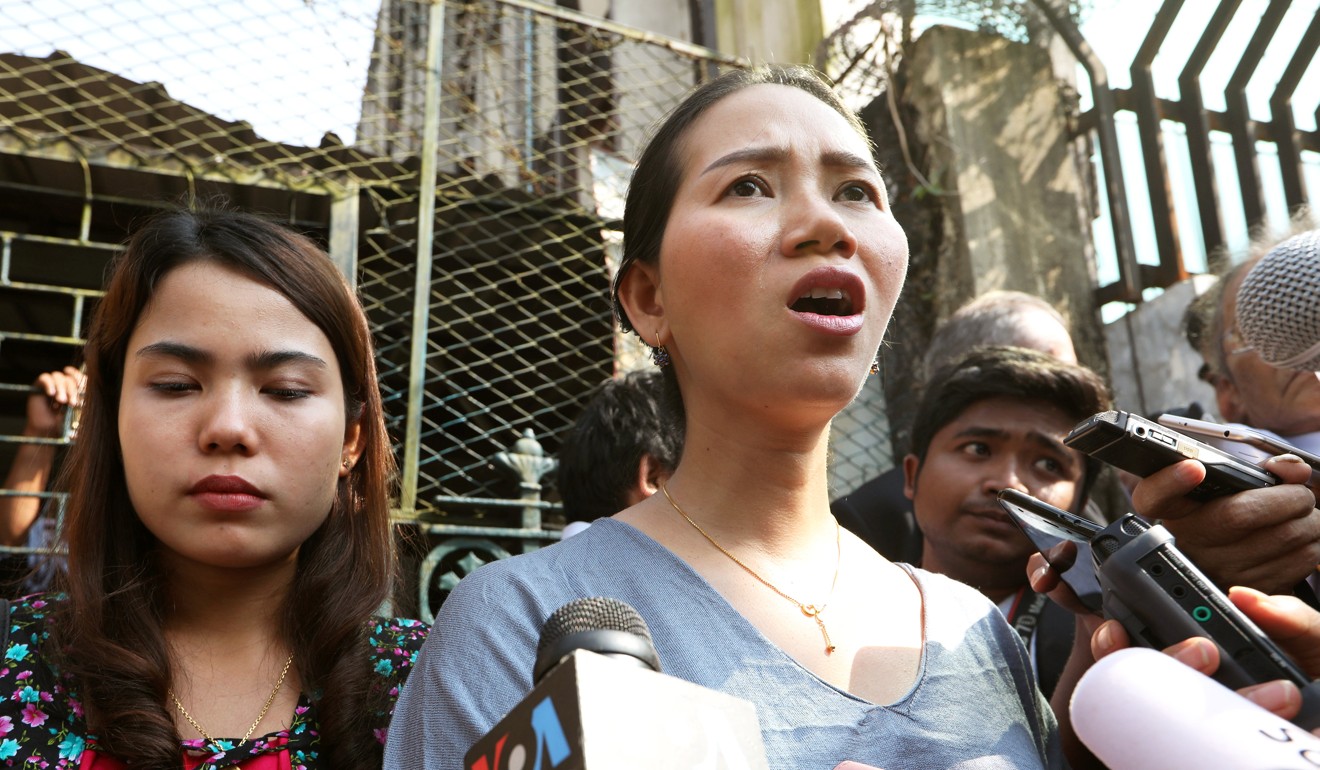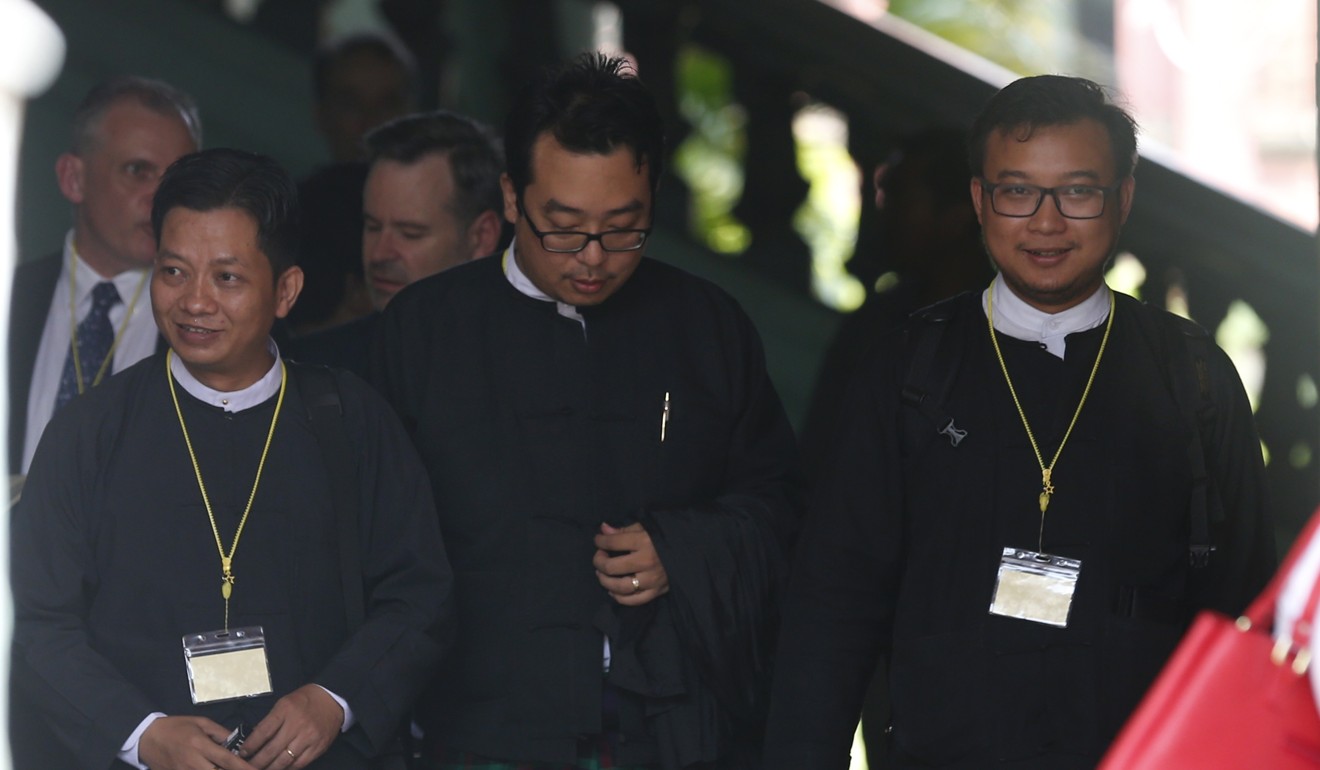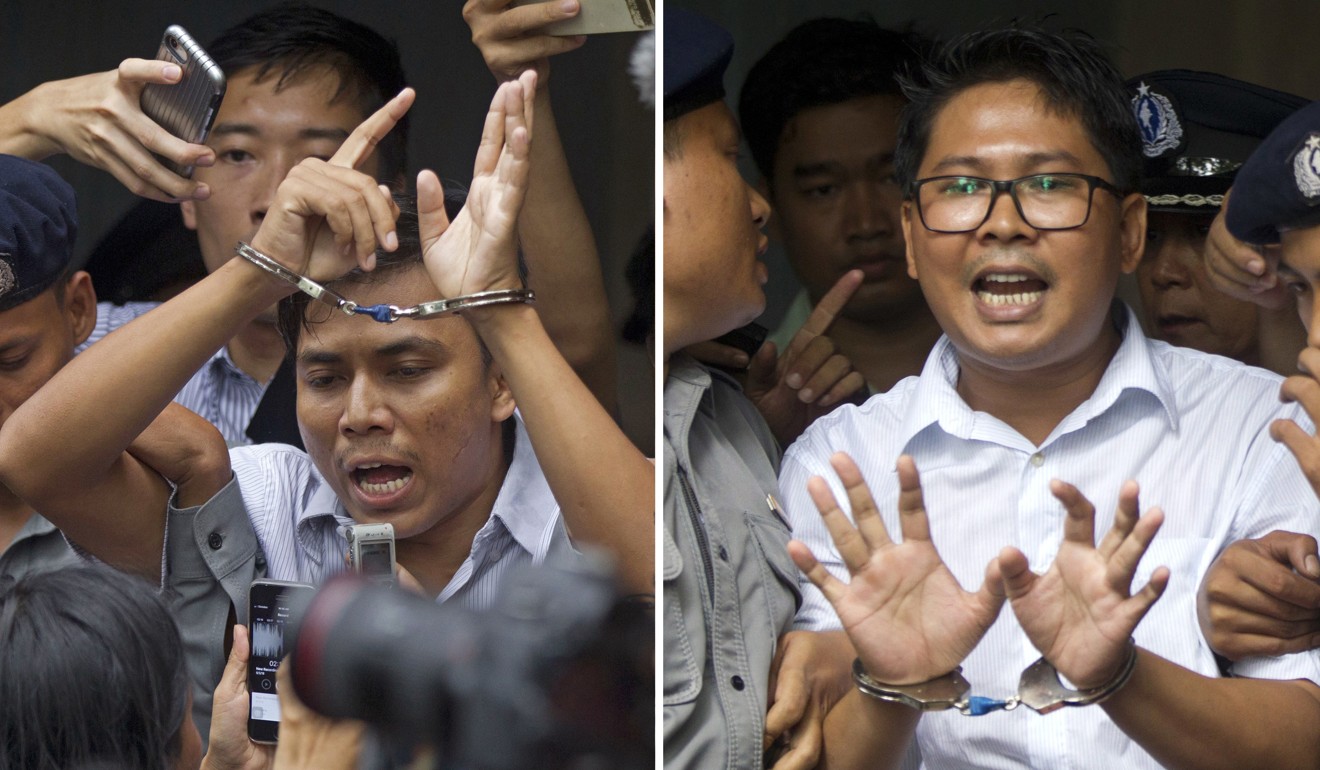
Myanmar rejects appeals of Reuters journalists jailed over Rohingya investigation
- Wa Lone, 32, and Kyaw Soe Oo, 28, were convicted in September in a landmark case that has raised questions about Myanmar’s progress towards democracy
Two Reuters journalists jailed for seven years while investigating atrocities committed against the Rohingya in Myanmar had their appeal dismissed on Friday.
Reporters Wa Lone, 32, and Kyaw Soe Oo, 28, were arrested in Yangon in December 2017 and later jailed for violating the state secrets act, a charge Reuters said was trumped up to muzzle their reporting.
Prosecutors say the two had classified information regarding security operations in Rakhine state, from where hundreds of thousands of Rohingya Muslims fled during an army-led crackdown the United Nations has described as “ethnic cleansing”.

Aung Naing, a judge at the Yangon Regional High Court, said the original verdict was a “reasonable decision” delivered in line with the law.
“The court decides to dismiss the appeal,” he said.
The reporters’ wives cried after the decision, which condemns the pair to continue their incarceration at Yangon’s notorious Insein prison, where they have been held for the last 13 months.
“I feel really sad that what we hoped for did not happen,” a stone-faced Chit Su Win, who is married to Kyaw Soe Oo, told reporters outside the court.
Wa Lone’s wife Pan Ei Mon, who has given birth to a baby girl since her husband was put behind bars, was similarly despondent. “I don’t want to talk about the decision today as it is not good news,” she said.

The two reporters, who were not present for the decision, have insisted they were victims of a police set-up, pointing to testimony from a serving officer who said a superior ordered others to entrap them.
“Today’s ruling is yet another injustice among many inflicted upon Wa Lone and Kyaw Soe Oo. They remain behind bars for one reason: those in power sought to silence the truth,” Reuters editor-in-chief Stephen J. Adler said in a statement.
“Reporting is not a crime, and until Myanmar rights this terrible wrong, the press in Myanmar is not free, and Myanmar’s commitment to rule of law and democracy remains in doubt.”
The defence has the option of making a further appeal to the country’s supreme court, based in the capital Naypyidaw.

In their appeal arguments made last month, defence lawyers had cited evidence of a police set-up and lack of proof of a crime. They told the appeal court that the lower court that tried the case had wrongly placed the burden of proof on the defendants.
Reporting is not a crime, and until Myanmar rights this terrible wrong, the press in Myanmar is not free
The defence also said prosecutors had failed to prove the reporters gathered and collected secret information, sent information to an enemy of Myanmar or that they had an intention to harm national security.
The judge said the defendants did not follow journalistic ethics and that the court could not determine whether the arrest of the reporters was a trap.
Khine Khine Soe, a legal officer representing the government, told the appeal hearing that the evidence showed the reporters had collected and kept confidential documents. He said they intended to harm national security and the national interest.
Before their arrest, the reporters had been working on a Reuters investigation into the killing of 10 Rohingya Muslim men and boys by security forces and Buddhist civilians in western Myanmar’s Rakhine State during an army crackdown that began in August 2017.
The operation sent more than 730,000 Rohingya fleeing to Bangladesh, according to UN estimates.

